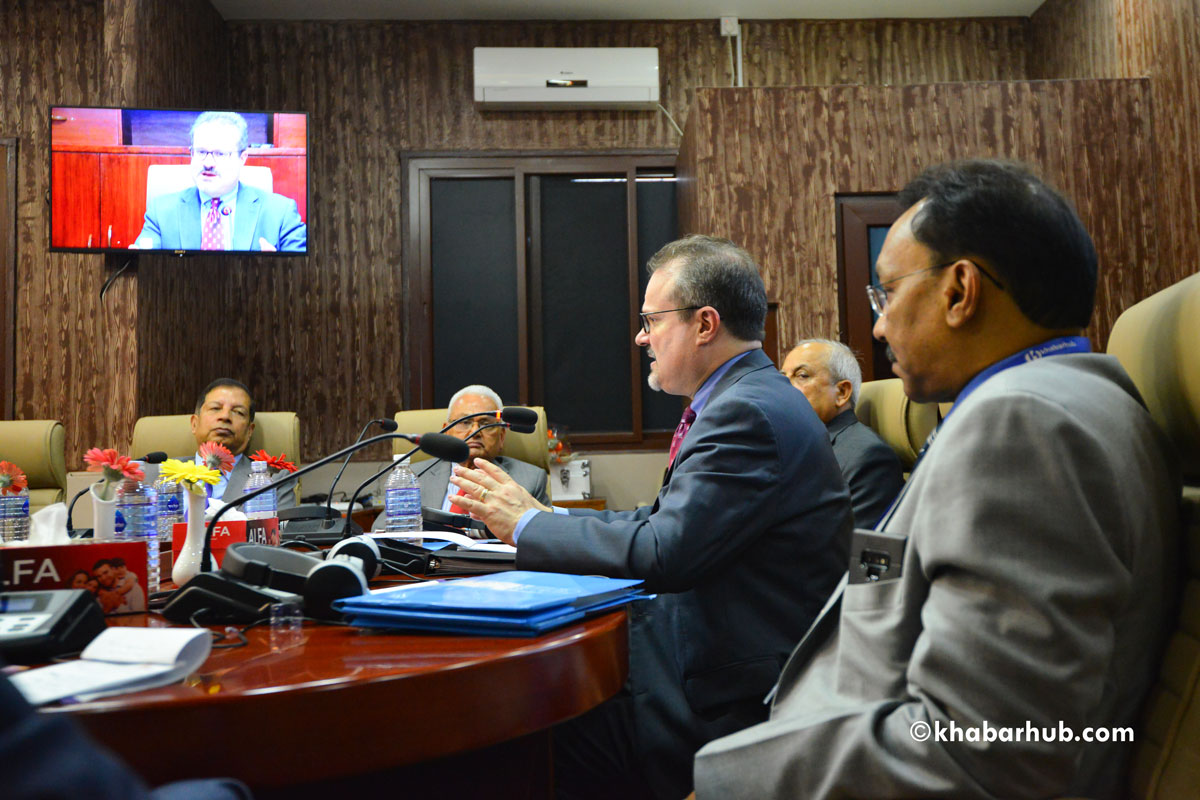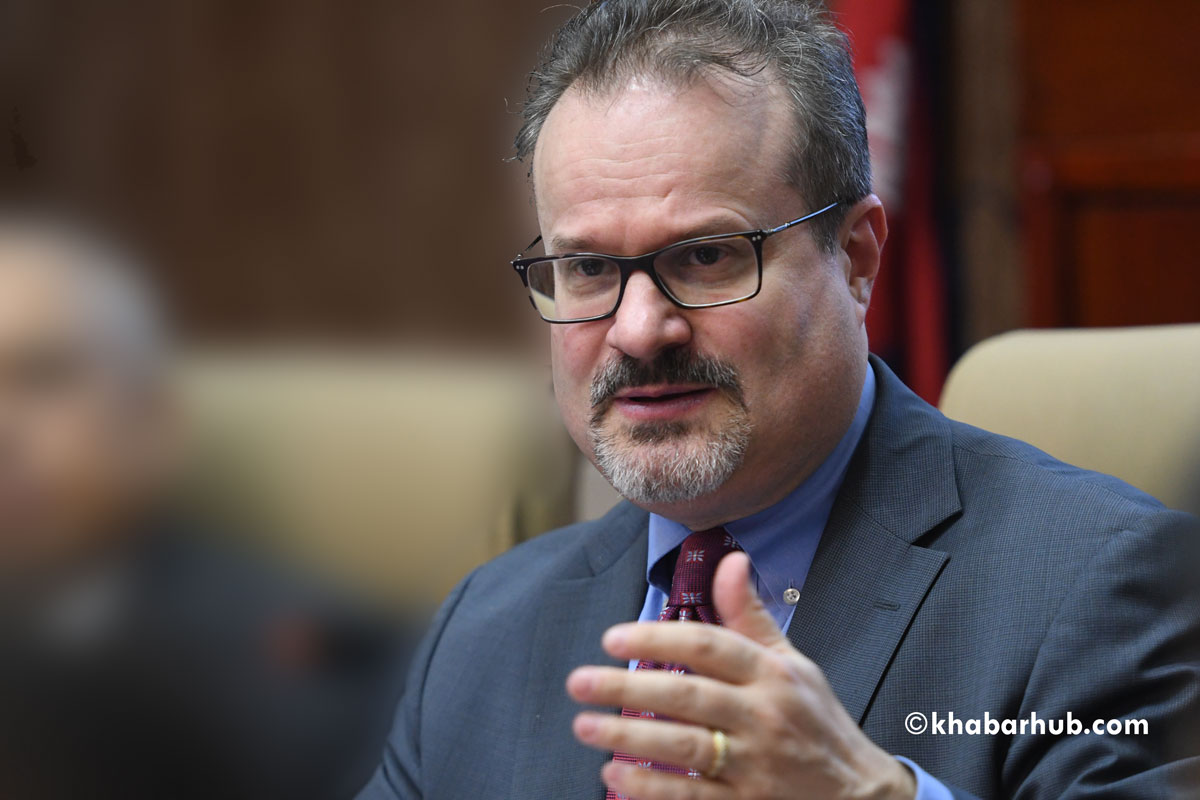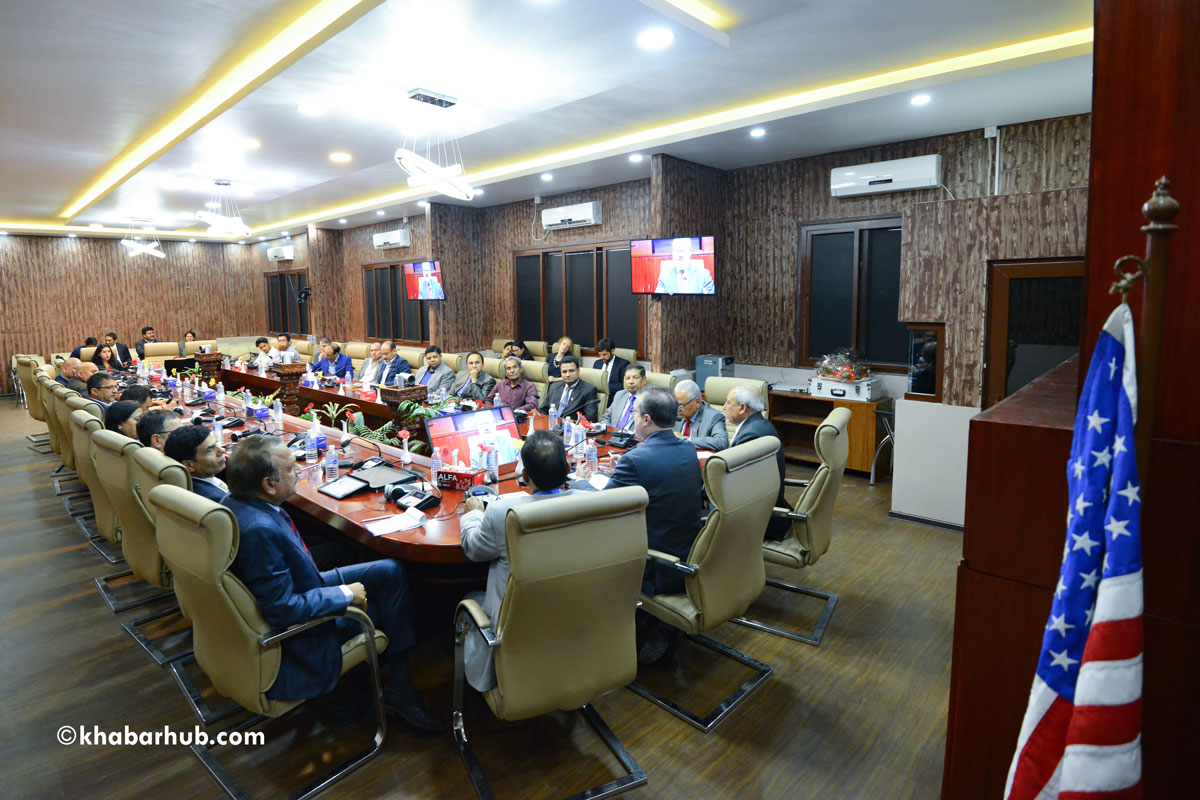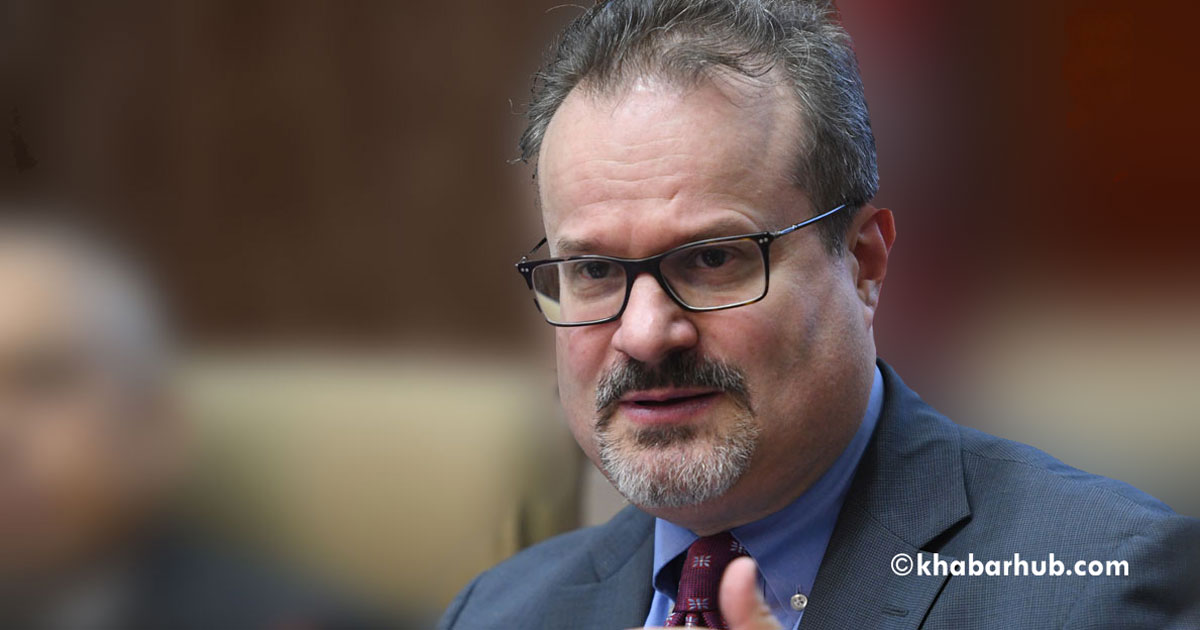KATHMANDU: David J Ranz, Acting Deputy Assistant Secretary for State Department’s Bureau of South and Central Asian Affairs, US Department of State has said Nepal would benefit from the Indo-Pacific Strategy, a US initiative to expand and deepen the strategic partnership between the countries in the Indo-Pacific region and advance common objectives.
Speaking at an interaction organized by Institute for Strategic and Socio-Economic Research (ISSR) and Pavilion Media, Khabarhub at the Pavilion Hall, Durbar Marg in Kathmandu today, he said that the Indo-Pacific Strategy is one of the United States’ most important priorities, adding that this will create an economic opportunity and ensure security to the benefit of both the United States and Nepal.
Acting Deputy Assistant Secretary for South Asia, US Department of State is in Nepal for an internal conference on air quality co-sponsored by the State Department’s Bureau of South and Central Asian Affairs.

Interacting with Nepal’s political leaders, intellectuals, foreign affair experts and diplomats, he said the Indo-Pacific Strategy is the US government’s approach to supporting a more free and open rules-based order in the Indo-Pacific region.
“It is not a treaty or a pact, or an alliance meant to counter others,” he said adding that it is a framework for having the United States’ well engaged in this region.
“I would like to emphasize that our approach to the Indo-Pacific is not about imposing our agenda on other countries or asking them to side with us rather than other neighbors,” he said adding that the United States is not asking Nepal to be “for” the United States or “against” any other country.
“We are asking Nepal to be “for” the principles that have already helped Nepal and the Indo-Pacific region prosper—principles like freedom, good governance, and transparency—and to be vigilant and outspoken against anyone who violates those principles and norms,” he added.

The United States, he said, stands for an international system in which a rules-based order enables countries to make informed decisions on what is best for them. Nepal deserves that, Nepal should expect that, and Nepal will benefit from that.
He said the United States seeks to work together with like-minded partners to ensure that the region remains free and open in the future. “This is not only beneficial for the US but is equally critical for Nepal,” he added.
Making it clear that the Indo-Pacific region supports Nepal’s own strategic interest, he said Nepal needs to make their own decision without coming under pressure from external forces.
“We want Nepal to be able to chart its own course, take its own decisions free from the outer decision or malign interest,” he said adding that the US wants the people of the Indo-Pacific to benefit towards improving good governance, transparency, and anti-corruption efforts.
Also on the occasion, he said a free press is the cornerstone of a functioning democratic society.
The Acting Deputy Assistant Secretary said, “To put it simply, there is a whole-of-government effort underway to expand the United States’ engagement with the Indo-Pacific region, including Nepal, to ensure it is free, open, and operates on a rules-based system.”
Stating that the US efforts are focused on three areas—economics, security, and governance—he said they have launched several new programs and initiatives under these themes to help achieve a vision for the Indo-Pacific, all in close consultation with like-minded allies and partners.

Likewise, talking to media people in the capital today, he said, “I have great respect for what journalists do, for your courage and dedication, often under very difficult circumstance.”
“I consider it a duty and an honor to keep you – and through you, the public – informed about the United States’ goals and objectives in partnership with Nepal,” he added.

On the occasion, he reminded the announcement of Secretary Michael Richard Pompeo, who announced nearly $300 million in additional security assistance for countries spanning the Indo-Pacific last summer, including $17 million to improve Nepal’s humanitarian assistance and disaster relief capabilities.
The Acting Deputy Assistant Secretary also visited the newsroom of Khabarhub in Durbar Marg on the occasion.









Comment